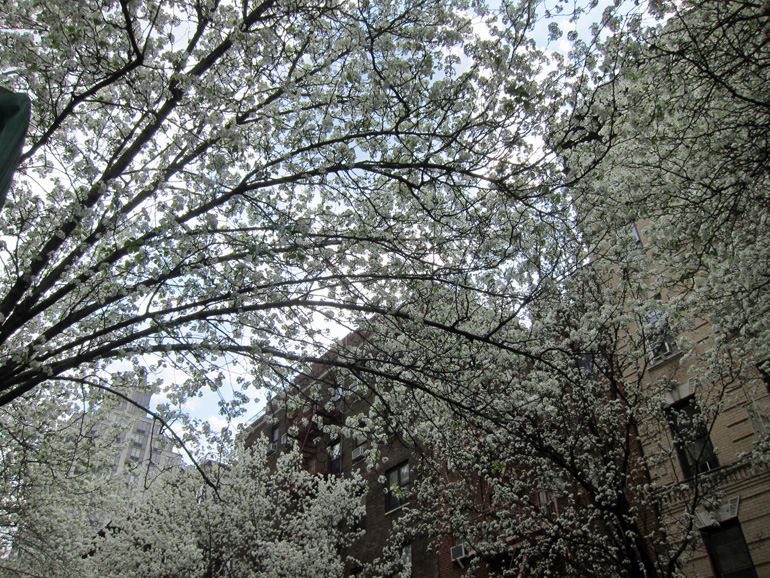Gotham Diary:
WEIRD
28 March 2012
WEIRD is a very handy acronym, coined by three cultural psychologists a couple of years ago, that ought to remind us of the limited applicability of our studies of the world — those of us who happen to be Western, Educated, Industrialized, Rich, and Democratic. Most people on earth don’t see the world as we do; according to Jonathan Haidt, who discusses the implications of the acronym in his important new book, The Righteous Mind: Why Good People Are Divided by Politics and Religion, most people have a more complicated idea of right and wrong than we do. Haidt wants us to stop thinking of most people — those who aren’t WEIRD — as deluded or misguided. He wants to show us why most people think that WE are weird. The lesson is overdue.
In the flush of his enthusiasm, however, he seems to think that we really are weird. Returning to the University of Virginia from a three-month Fulbright fellowship in Orissa, in southern India, he senses the first stirrings of an “ethic of divinity,” an awareness that his rigorously secular upbringing might have been missing something. He’s right, but he is also impatient, as people always are with new discoveries. At a cafeteria, he is affronted by the vulgarity of a young woman who thanks a friend for a big favor by saying that, if the friend were a man, she would know just how to say “thank you.” I am not going to repeat the details that Haidt (quite rightly) finds disgusting.
The ethic of divinity lets us give voice to inchoate feelings of elevation and degradation — our sense of “higher” and “lower.” It gives us a way to condemn crass consumerism and mindless or trivialized sexuality. We can understand long-standing laments about the spiritual emptiness of consumer society in which everyone’s mission is to satisfy their personal desires.
As tantrums indulged by WEIRD people who have “seen the light” go, this is very representative stuff. As insight into WEIRD malaise, however, it is totally unhelpful. We can’t go back to Orissa, and most people in Orissa would take about a generation to become WEIRD if they relocated to Toledo. Crass consumerism and mindless or trivialized sexuality are the unwanted but unavoidable costs of living in a construction zone. Here in the West, the old ethics of community and divinity were dismantled (or at least deprived of status) a long time ago, on the theory that they caused more harm than good. Living with the remaining ethic of autonomy, we have learned that it is not sufficient. We see that we need to refashion ethics of community and divinity. It is my hope (and sometimes, on good days, my conviction) that the old sense of divinity will metamorphose into a new sense of stewardship: a “green” respect for the mysteries and exigencies of life on earth. This stewardship will necessarily involve a refashioning of community obligations. Â
To revisit the young woman at the cafeteria table, what’s trivialized isn’t sexuality. (“I’m kidding,” you can hear her cry.) What’s trivialized is the public space in which the remark is made. Like so many people on cell phones, the young woman is oblivious of the strangers around her; because she does not know them, or because her attention is focused upon one friend, they don’t exist. She makes her raunchy comment as if they weren’t there, but of course they are there. Her rude thoughtlessness is what you have to expect when the ethic of autonomy is all that people have to go on, and Haidt is right to be disgusted. But the prevailing way of life in Orissa has nothing to tell us about how to advance. It only reminds us where we’ve been — in an everyday landscape littered by an even more extensive disregard for the public sphere. (“Cows and dogs roamed freely around town,” Haidt reminisces, “so you had to step carefully around their droppings; you sometimes saw people defecating by the roadside; and garbage was often heaped into fly-swarmed piles.”)Â
What we need is an ethic of public respect. Obviously, it’s going to need a better name than that; ever since the French Revolution, we’ve seen that invocations of the “public” interest tend to bring out the worst in people and politicians. “Honorable stewardship” is the best that I can do this morning.
***
Where did the sun go? I’ll be out for a few hours, making grand rounds. (I’m going to ask the internist, as long as I’m there for my annual physical exam, to drop some Blephamide, prescribed the other day by the ophthalmologist, into my eyes. I’m hopeless at it myself and would just spill it down my cheeks. Kathleen takes care of the operation mornings and nights, but that leaves two midday doses.) I can’t wait to see how much more of the intersection of 86th Street and Second Avenue has been torn up since yesterday. It’s looking like Baghdad out there — and sounding like it, too. Blasting begins any day.

